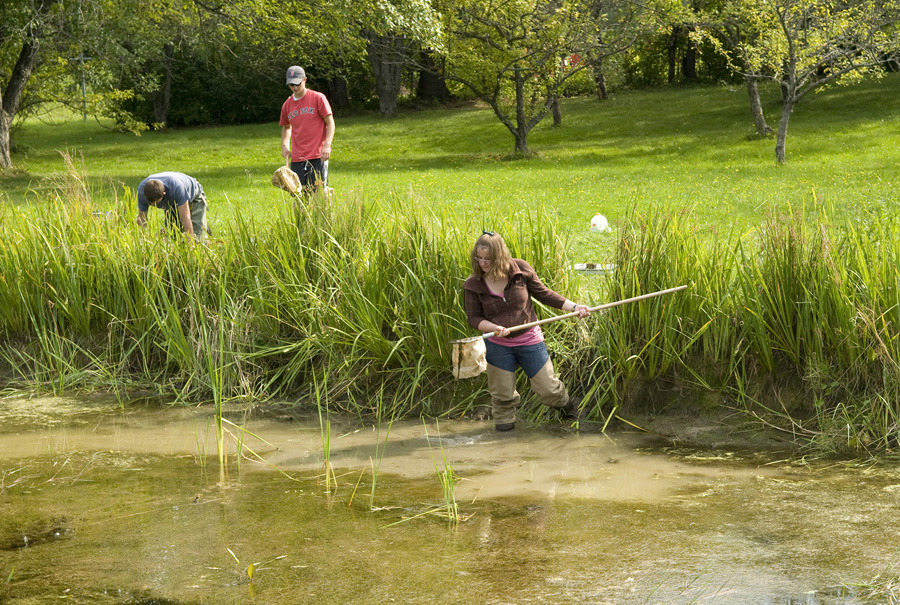
Unraveling the multiple impacts of climate change on freshwater food webs: a multi-scale approach
The desire to understand and anticipate the effects of climate change on ecological communities is a regional, national, and global research priority. The regional effects of climate change have the potential to strongly degrade freshwater ecosystems and the cultural, economic, and social services (e.g., fisheries) they provide the people of Maine. Changes in weather patterns are impacting Maine freshwaters though increased flood and drought frequencies and warmer summer water temperatures. In addition, climate-mediated range expansions and outbreaks of forest pests threaten to dramatically alter the forest composition of watersheds. Social concern over climate change effects on ecosystem services such as fisheries and water quality is increasing, as is the related media attention. Although the occurrence of climate change perturbations is inevitable, Maine water managers can mitigate impacts by prioritizing the maintenance of resilient ecosystems when making decisions on the sustainability of other sources of environmental stressors. However, the ability to make these decisions is limited by a lack of understanding of how multiple stresses associated with climate change will impact freshwaters. My research will generate the critical understanding of how environmental stressors acting at stream, catchment, and landscape scales affect the food-web processes that link biodiversity with ecosystem functions and services. Specific knowledge includes: (1) an understanding of the ecosystem properties that influence vulnerability of freshwaters to climate change. These thresholds can be used to guide water quality targets for managing changes to local environmental conditions to maximize ecosystem resilience; (2) new information on the effects of hemlock decline and other forest canopy changes on aquatic ecosystems and the services they provide to humans (e.g., water quality, fish production, carbon sequestration). This knowledge also has the potential to shed light on the broader consequences of other contemporary pest outbreaks, such as emerald ash borer, winter moth, mountain pine beetle, and how they can be managed to reduce the impacts on freshwater resources. Together, this information will provide a sound scientific basis for building risks associated with increasing vulnerability of freshwaters to climate change into water management decisions. Information gained during this study will therefore help maintain robust ecological communities that minimize the negative effects of climate change on Maine freshwater ecosystems and the services they provide.
Investigator: Greig, H.
Unit: School of Biology & Ecology
Termination Date: 30-Sep-20
